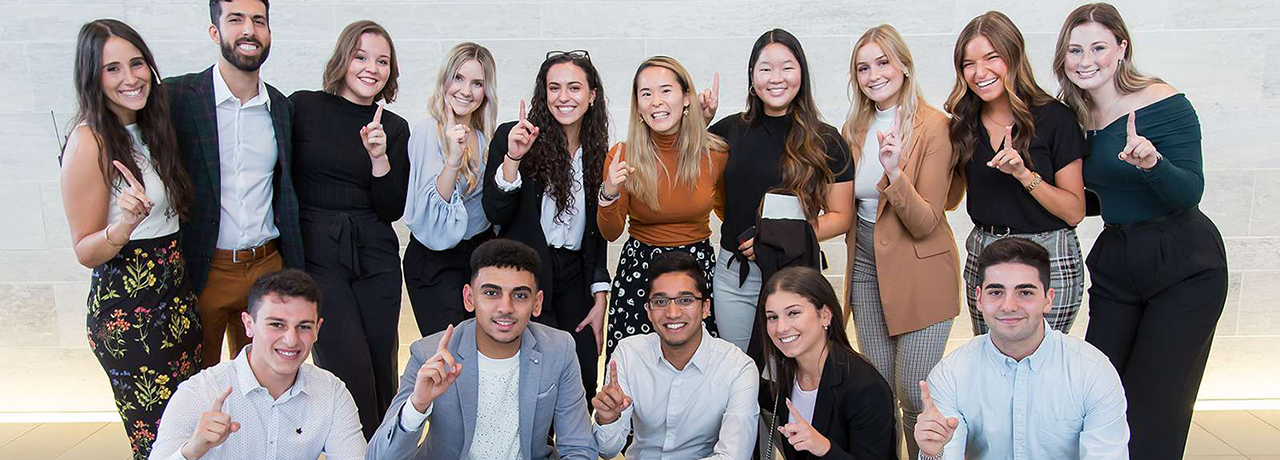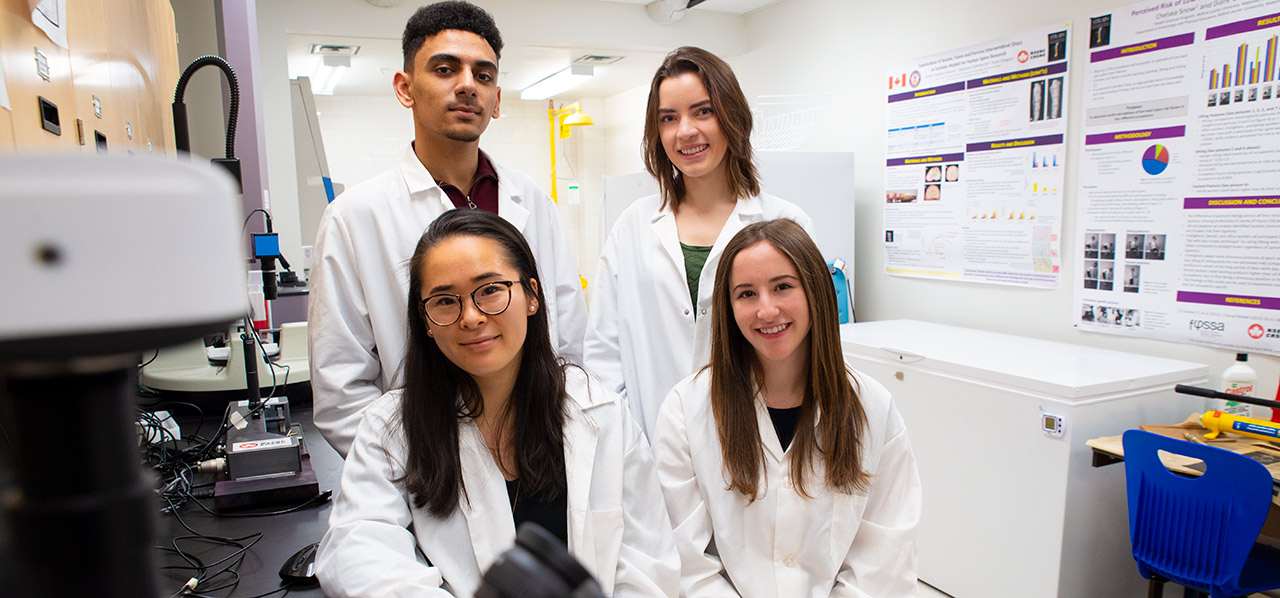
In honour of its 10-year anniversary, Wilfrid Laurier University's Department of Health Sciences brought back two accomplished alumni taking new and innovative approaches to health care and their careers.
The Changemakers Under 30 event, held on Sept. 30 at the Centre for International Governance Innovation, included presentations from Michelle Gould, a pediatrician and fellow at the Hospital for Sick Children in Toronto, about "Creating a Career – Combining Passion and Innovation to Drive Change" and Latif Murji, a family and ER physician working in rural communities, about being an "Innovator in Health Equity." Both are graduates of Laurier’s inaugural Health Sciences class.
Health Sciences alumni are making their mark in a variety of careers, including public health, medicine, epidemiology, physiotherapy, nursing, dentistry and pharmacy, in part because of the program’s unique cell-to-society focus.
Students leave with an understanding of health and well-being as shaped by a confluence of factors including biology, genetics, lifestyle, income, early childhood, gender and education.

Michelle Gould and Latif Murji pictured at Health Sciences' Changemakers Under 30 event.
"Students apply to Health Sciences because they want to help people and make a difference," says Robb Travers, professor and chair of the Department of Health Sciences. "When we show them that in Canadian society health is not equally distributed it ignites their passion to create change, so patient outcomes are better."
After Laurier, Gould completed medical training at McMaster University and residency training at the University of Toronto, then went on to become a fellow in pediatric gastroenterology, hepatology and nutrition at SickKids in Toronto.
Gould is training to become one of only three specialists in Canada treating an underserviced population of children with bowel conditions called motility disorders.

Laurier’s Health Sciences program has grown in reputation, with incoming class averages increasing by almost 10 per cent since 2009.
"It may not sound like a glamorous career path, but I found a population I’m passionate about working with and making a difference for," says Gould. "That’s what should drive careers in medicine – not something that sounds good to other people."
In addition to his work as a rural family and ER physician, Murji started Stand Up for Health, an award-winning not-for-profit that aims to help health care professionals better understand how social factors affect health.
Murji is also a faculty member at the University of Toronto, where he received his medical training, and is the coordinator of global health, diversity and health equity at Scarborough Health Network.
Laurier Health Sciences students benefit from the program's multi-faceted and multi-disciplinary curriculum and faculty. The foundation of the program was laid by former mathematics professor Richard Elliott, who later became the program's inaugural coordinator, with the support of Deborah MacLatchy, then dean of science and now university president and vice-chancellor. There were 72 students in the program's first class 10 years ago. From these early beginnings, Health Sciences continues to grow and now includes an enrolment of over 550.
Along with its growth in numbers, Laurier's Health Sciences program has also grown in reputation, with incoming class averages increasing by almost 10 per cent since 2009. While application numbers are consistently strong, a commitment to smaller incoming cohorts remains a pillar of the program, providing students the chance to build closer relationships with their professors and to access to more opportunities.
"I still hear from students who have gone on to study at other schools that they feel way ahead of their peers because of the opportunities they had here," says Travers. "In bigger schools, those opportunities go to master’s students. In Laurier Health Sciences, they go to senior undergrads and that really opens a lot of doors."
Travers credits the growth of the program to word of mouth from student ambassadors and alumni, including Murji and Gould.
"I think after 10 years, you grow this critical mass of people who are out there talking about their experiences at Laurier and that makes it easier to attract really top-notch students," he says.